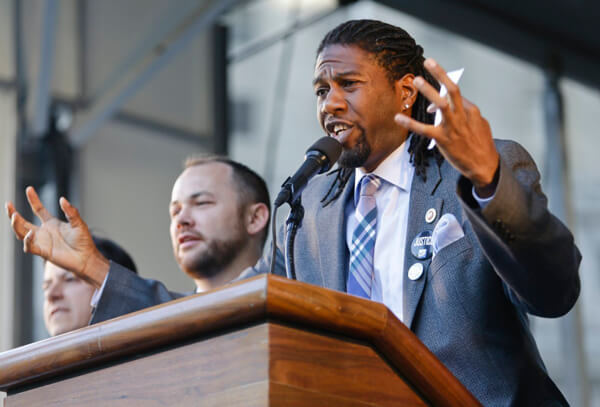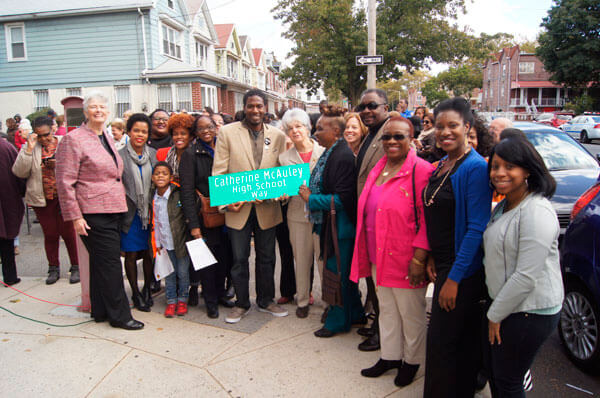New York City Bill de Blasio has signed into law the Commuter Van Safety Act, comprising three bills that crack down on illegal, rogue Caribbean commuter van operators who legislators say pose a danger to commuters, while also ensuring that licensed and insured operators operate safely across the city.
Intro 0570, sponsored by Caribbean American Council Member Jumaane D. Williams, would align legitimate commuter van operators with the practices of other livery services by, among other things, eliminate the six-year renewal disparity and eliminate the requirement for petitions to receive operating approval.
Under this bill, New York City Department of Transportation (DOT) retains the power to revoke operating authority if necessary.
In addition, all Caribbean and other commuter van operators must continue to provide, upon demand by enforcement officials, a commuter van license and a driver’s commuter van license.
“Commuter vans are a major source for transportation in my district, and in many other communities across the City,” said Williams who represents the predominantly Caribbean 45th Council District in Brooklyn. “They fill the gap in transportation starved areas.”
“Unfortunately, commuter drivers often get painted with a broad brush, and are accused of infractions that legal drivers are not committing,” he added. “These bills are about making sure people have the legal opportunity to operate commuter vans, while also stepping up enforcement and ensuring passenger safety.
This bill takes effect within 120 days of being signed into law, Williams said.
The other bills in the package include Intro 0860 and Intro 0861-A, sponsored by Council Member I. Daneek Miller, who represents the 27th Council District in Queens, New York.
Intro 0860, which goes into effect immediately, calls for no more than 735 licenses for commuter vans.
It also calls for, among other things, a study that would report on the number of safety related violations, disaggregated by the number that result in crashes, committed by commuter vans; and the number of illegal commuter vans operating in New York City to the extent known or estimated, and a discussion of the state of the commuter van industry.
Intro 0861A increases penalties applicable to operators of commuter vans.
Under this bill, any person who knowingly operates a commuter van without the proper authorization faces a maximum fine of US$3,000 for the first violation, and US$4,000 for a second violation, if committed within two years of the first violation.
“Since I can remember, commuter ‘dollar’ vans have been a part of everyday life for residents of Southeast Queens. These businesses try to provide a service that the MTA [Metropolitan Transportation Authority] does not; and because they were poorly regulated, it has created an unsafe environment for commuters and drivers alike,” Miller said.
He said the bills signed into law support efforts “by deterring van drivers from breaking the law and developing ways we can make the industry more efficient.”
Williams said Caribbean commuter vans, also known as “dollar vans,” offer “vital, affordable transportation in communities where there are limited transit options.”
“The Commuter Van Safety Act represents long-needed reform of the Commuter Van industry. As a long-time owner / operator myself, I’ve seen the industry’s highs and lows,” said Jamaican Leroy Morrison of the Commuter Van Association of New York and owner of Alexis Van Lines.
“The Commuter Van industry has been on the front lines of transporting New Yorkers where they lack other transit options,” he added. “We’ve stepped in during natural disasters and other crises when needed. This Act will help level the playing field, but also protect commuters against rogue, unlicensed and uninsured, drivers who threaten the safety and well-being of the public.”
Morrison’s compatriot, Hector Ricketts, president of the Commuter Van Association of New York, said “the vision, tenacity and hard work” invested by Williams and his staff on the Commuter Van Reform Bill is “applauded by commuter van operators and citizens in communities across the City, where vans operate and are needed.
“His efforts will, for the first time, level the playing field for operators who have consistently responded to the City’s crisis but were not given a fair shake,” Ricketts said.
























